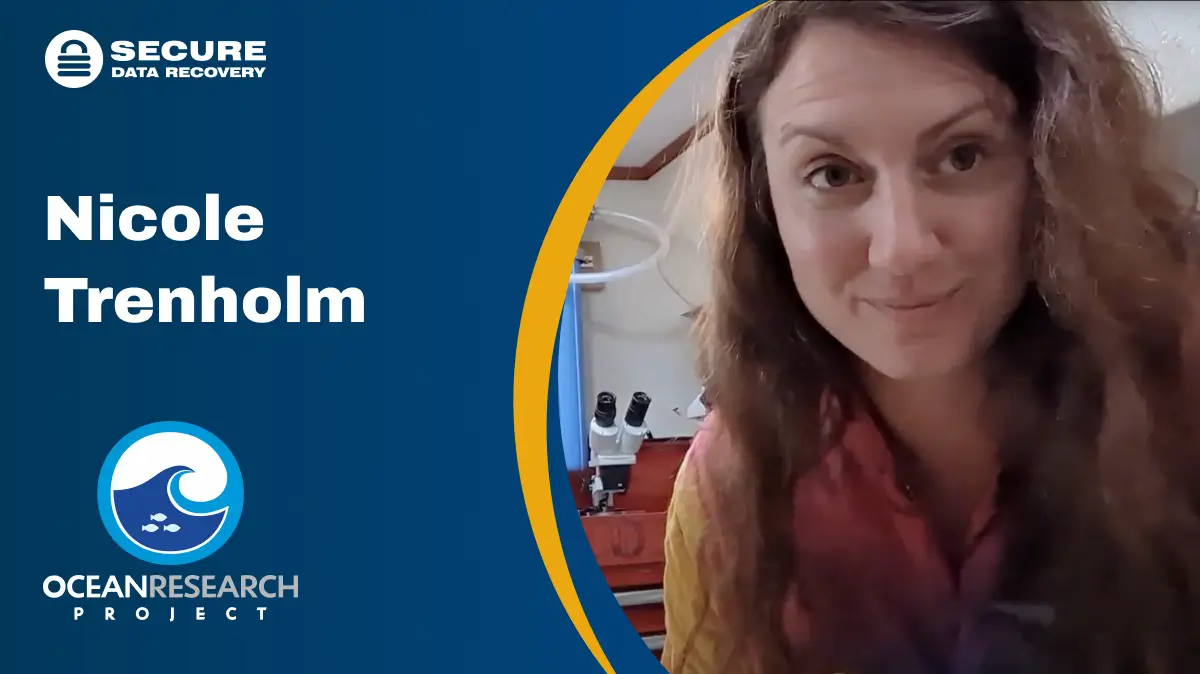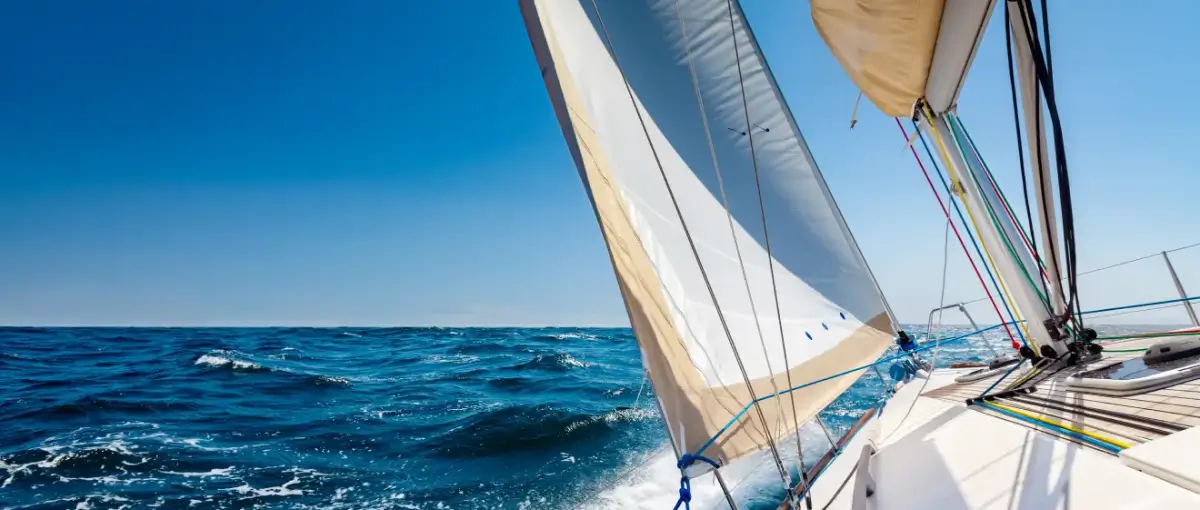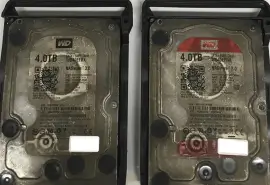The Ocean Research Project is a nonprofit organization that dedicates itself to advancing the marine sciences and promoting environmental sustainability. The organization is committed to helping foster a deeper understanding of the Earth’s oceans and their current trajectory. This is done through various innovative research, exploration, and educational initiatives.
Below, we’ll do a deep dive into everything that makes the Ocean Research Project. We’ll talk about how it all started, its goals, and how it plans to achieve them.
The Ocean Research Project
The Ocean Research Project (ORP) was founded in 2012, with a clear passion and vision from its founder, Matt Rutherford. The Project's primary mission is to monitor and mitigate humanity’s impact on the world’s oceans. Which was something that Rutherford felt was distinctly falling short at the time.

The Early Days
Matt Rutherford
Before founding the ORP, Matt Rutherford was, first and foremost, a sailor, a seasoned mariner, and an adventurer. In 2012, he set a new record for navigating the tiniest boat in history through the Northwest Passage. He didn’t stop there. His journey spanned more than 27,000 miles in 309 days, circling the Americas.
During Rutherford's record-breaking 27,000-mile expedition, he noticed several things amiss about the ocean. The first was plastic waste. While fishing, Rutherford noticed that most of the time he was catching waste. That was the first problem that got him thinking about ways to help heal the world’s oceans.
While traversing the Northwest Passage, a sea connection between the Atlantic and Pacific oceans along the Arctic, Matt came across the second major problem with our oceans. The substantially dwindling sea ice. While this helped him navigate the notoriously treacherous route, it was alarming for the ocean’s health.
His passion for the ocean and its meaning to humanity is what prompted him to start the ORP. And, for their first mission, collect plastic debris while mapping the eastern side of the North Atlantic garbage patch.
Not long after his voyage, Rutherford spoke of his success at the Maryland Yacht Club in Anne Arundel County. Among the audience was oceanographer Nicole Trenholm. A few short months later, she would go on to lead ORP's scientific arm.
Nicole Trenholm
A passionate oceanographer, mariner, and doctoral candidate, Nicole Trenholm was working for the National Oceanic Atmospheric Administration (NOAA) in 2012. In her spare time, she obtained her captain’s license and sailed on nights and weekends with her friends.
While listening to Rutherford’s speech, Nicole saw an opportunity that would allow her to combine her passion for oceanic research with her love for sailing. Fast forward a few months, and she was spearheading ORP’s efforts to raise awareness about the state of our oceans.
Rutherford and Trenholm got straight to work. They started preparing a steel schooner they’d recently acquired, the RV Ault, for the Ocean Research Project’s first expedition. In 2013, they set sail from Maryland, spending 70 days sailing the Atlantic. During this odyssey, they collected plastic debris and mapped the garbage density in the eastern part of the Northern Atlantic.
This was a key moment in the ORP’s story. Since then, the project has expanded its operations to the Pacific Ocean and has sailed over 25,000 miles.
The Mission
The ORP's goals are to advance marine sciences, further our collective understanding of ocean ecosystems, and improve environmental viability. The organization combines adventure with science, committing to explore and conduct innovative research. It collects crucial data on ocean health, marine biodiversity, and the impacts of climate change.
However, the Ocean Research Project doesn’t stop at scientific research. Its founders share a passion for the oceans and strive to improve awareness among the public.
By working with leading scientists, educators, and the public, the nonprofit hopes to become a catalyst for a wider commitment to preserving marine ecosystems.
Current Projects
In practical terms, the Ocean Research Project’s work involves promoting sustainable practices and advocating for policy changes. Their goal is to start a cultural shift that allows humans and marine ecosystems to live alongside each other without harming the oceans. Let’s take a closer look at the specifics of its current ongoing projects.
Marine Plastic Pollution
Analyzing marine plastic pollution lies at the heart of the ORP’s work. To understand the nature of plastic debris in the oceans, the ORP has completed several expeditions. Those expeditions spanned the Atlantic, Pacific, and Arctic oceans. This gave them a wide range of data from different parts of the world.
ORP’s research differed from other similar expeditions in one key aspect: it was conducted from a sailboat. This offered it an increased flexibility to cover far broader areas. As a result, this has helped provide a crucial baseline for marine surface debris data. The data includes its concentration, composition, and the extent of its presence in the oceans. Additionally, the ORP helped give scientists insights into the diversity of the plastic debris, and the impact it had on bacteria and viruses in the oceans.
Closer to home, ORP spearheaded the Chesapeake Bay Plastic Survey. A biannual effort to monitor the plastic pollution trends in the United States’ largest estuary. The data from these studies will be used to inform a multi-year sampling program by local, regional, and federal governments.
Despite making strides in marine plastic debris studies, ORP firmly believes that education is the missing piece of the puzzle. Plastic pollution in the ocean is difficult to prevent without a greater public understanding of the implications of improper disposal.
Ocean Melting Greenland
Throughout 2015 - 2016, ORP joined forces with NASA’s Ocean Melting Greenland program. This kickstarted their groundbreaking research around Greenland’s Arctic waters due to its rapidly melting ice caps.
The mission's main objective was to study the warm water column coming up from the Atlantic. Which, is commonly believed to be the cause of Greenland’s melting glaciers. Despite hostile conditions, ORP’s crew of four worked around the clock throughout these two five-month expeditions.
The ORP’s crew conducted hydrographic surveys across various fjords, mapping the depth and pathways of the warm Atlantic currents. ORP mapped 2,500 miles of northwest Greenland, including parts of the seafloor which have never been mapped before.
Thanks to these new insights, ORP and NASA were able to publish a groundbreaking scientific paper. This research showed how Atlantic currents change as they move north along Greenland’s west coast, and which glaciers terminate in deep water.
To date, the Ocean Melting Greenland program has continued to monitor changes in ice elevation and hydrographic properties. Providing the scientific community with more precise forecasts of the impact of future ocean-ice interactions on the Greenland Ice Sheet.
GO-MARIE
The Glacier-Oceans Mapping and Research Interdisciplinary Effort, or GO-MARIE, is ORP’s 2023 initiative. The primary objective is to explore previously uncharted regions in the vicinity of Greenland’s fjords.
To achieve this, ORP is using its new flagship, the RV Marie Tharp. The ship boasts a hull mount, allowing the team better access to these glacial fjords. This enables them to collect better hydrographic data as a result.
The ORP is well on its way to achieving its mapping project objectives for 2023-2025. This is thanks to the efforts of its expanded base crew of seven. Rotating ocean science experts join for select legs of the expedition. This includes several high-profile partnerships, like the University of Charleston’s BEAM program.
Staying true to its strong belief in the importance of education, ORP’s GO-MARIE program has various community engagement plans. Working alongside Greenland researchers, ISAFFIK, Arctic Hub, and Greenland Science Week, ORP helps with mapping and research of the fjords.
How Secure Data Recovery Helped
Surely, journeys across the Earth’s oceans, especially the Arctic, can be challenging. In these harsh conditions, unforeseen events can often occur.
The Ocean Research Project’s crew faced one such incident near one of Greenland’s glacial fjords. An ice calving (when part of an iceberg breaks away) happened in the vicinity of the RV Marie Tharp. Fortunately, the ship and the crew were unharmed.
However, the crew’s hard drive, containing invaluable data they spent weeks collecting, some of which wasn’t backed up, wasn't so lucky. The ship’s rocking tipped it from a shelf into a bucket of salt water, rendering it unusable.
Fortunately, waterlogged hard drives are one of our areas of expertise at Secure Data Recovery. Once the ORP got in touch with us, we were able to recover their lost data without any issues. Ensuring that the crew’s expedition wasn’t in vain.
If you’ve experienced a similar data loss situation, get in touch with us today. We offer a free diagnostic and boast a “No Data, No Recovery Fee” guarantee.
Give us a call at 800-388-1266 to start a case!





